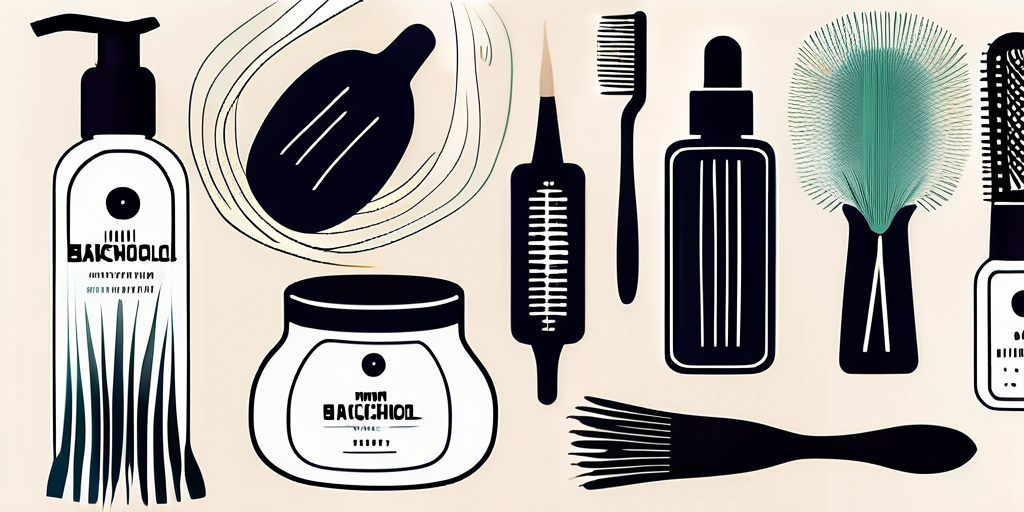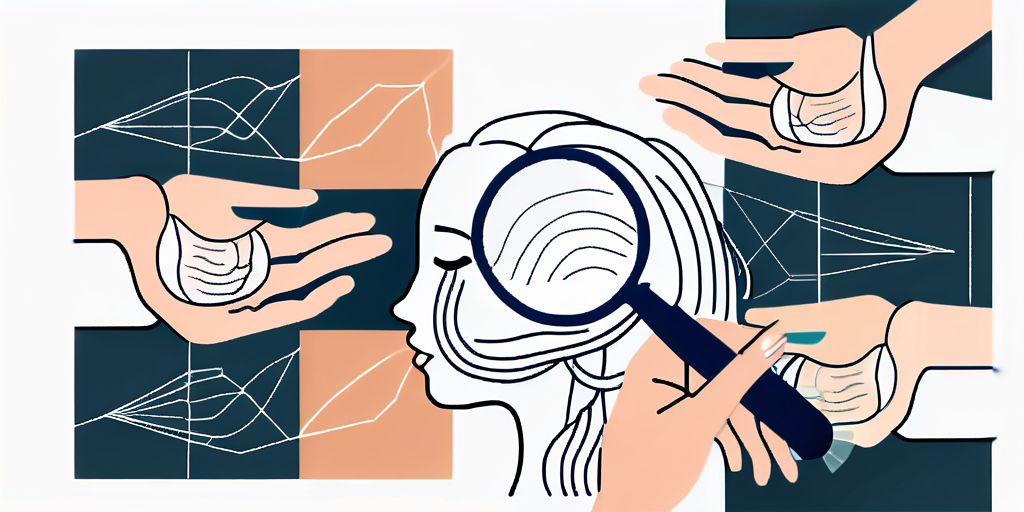Menopause, Itchy Scalp, & Hair Loss: What's the Connection?

Menopause marks the end of a woman’s reproductive years and is accompanied by a number of hormonal changes, particularly estrogen and progesterone. These hormone levels fluctuate significantly leading up to menopause. While most people are aware of the more commonly discussed symptoms like hot flashes, mood swings, and sleep disturbances, there are other lesser-known effects of menopause that can have a significant impact on a woman's overall well-being. One such effect is the connection between menopause, itchy scalp, and hair loss.
Itchy Scalp and Menopause: The Link
Many women going through menopause experience an itchy scalp and thinning hair, which can be not only uncomfortable but also distressing.
Hormonal Changes and Skin Sensitivity
During menopause, there is a decrease in the production of estrogen, which can lead to changes in the skin's sensitivity and overall health. Estrogen plays a key role in maintaining healthy skin by promoting collagen production and ensuring proper hydration. As estrogen levels decline, the skin may become drier, more sensitive, and prone to irritation.
Menopause and Increased Scalp Irritation
In addition to skin sensitivity, hormonal changes during menopause can also affect the scalp. The scalp has its own ecosystem of microorganisms, including beneficial bacteria and fungi, that help maintain its health. However, hormonal imbalances can disrupt this delicate balance, leading to scalp irritation and itchiness.
Hair Loss During Menopause: Why It Happens
Another common concern for women going through menopause is hair loss.
The Role of Estrogen in Hair Growth
Estrogen plays a crucial role in hair growth by prolonging the anagen (growth) phase of the hair follicles and promoting the production of new hair. As estrogen levels decline during menopause, the hair follicles may enter the resting phase (telogen) earlier than usual, resulting in increased hair shedding.
Impact of Menopause on Hair Follicles
In addition to hormonal changes, menopause can also affect the health of the hair follicles themselves. As estrogen levels decline, there may be an increase in the production of dihydrotestosterone (DHT), a hormone that can shrink hair follicles and shorten their growth cycle. This can lead to thinner, weaker hair that is more prone to breakage and shedding.
Addressing Itchy Scalp and Hair Loss in Menopause with Bakuchiol
While it can be disheartening to experience itchy scalp and hair loss during menopause, there are steps you can take to address these issues and promote scalp and hair health.
Bakuchiol: A Natural Alternative for Menopausal Hair Care
Bakuchiol, derived from the seeds of the Psoralea corylifolia plant and used for centuries in traditional Ayurvedic medicine for its various healing properties, is a natural alternative to retinol. Retinol has long been used for its anti-aging properties, but it can be too harsh for menopausal skin, which tends to become more sensitive. Bakuchiol, on the other hand, offers similar benefits without the irritation. This makes it an ideal choice for women experiencing menopause-related scalp changes.
Bakuchiol is rich in antioxidants, which help protect the scalp from free radical damage and promote a healthy environment for hair growth. It also has anti-inflammatory properties that can soothe the scalp and reduce irritation. This is especially beneficial for menopausal women who may experience scalp sensitivity during this hormonal transition. By incorporating bakuchiol into your hair care routine, you can not only promote hair growth but also improve the overall health of your scalp.
Multiple studies have been conducted to understand the benefits of bakuchiol on the overall skin environment (don’t forget that your scalp and facial skin share similar properties). One study published in the International Journal of Cosmetic Science found that bakuchiol reduced the appearance of wrinkles and improved skin firmness after 12 weeks of use.

Another study, published in the British Journal of Dermatology, compared the effects of bakuchiol and retinol. The results showed that both ingredients had similar effects on reducing the signs of aging, however, bakuchiol was better tolerated and caused less skin irritation.
The Benefits of Alon Formulas
While bakuchiol shows great promise in addressing menopause-related skin itch and hair concerns, not all products are created equal.
Alon Formulas offers a diverse range of scalp care ingredients that specifically nourish and repair the scalp environment for immediate relief. You no longer need to use outdated approaches to treat your itchy scalp with harsh products or medications that often make things worse. Alon Labs understands that your scalp, much like your skin, requires a delicate balance of moisture, nourishment, and protection to restore its youthful vitality. Our products are designed to rejuvenate your scalp's environment and flora, offering relief and long-term care without the irritation. For a harmonious blend of science and nature that caters to your menopausal skin and hair needs, Shop Now and discover the Alon Labs difference.


